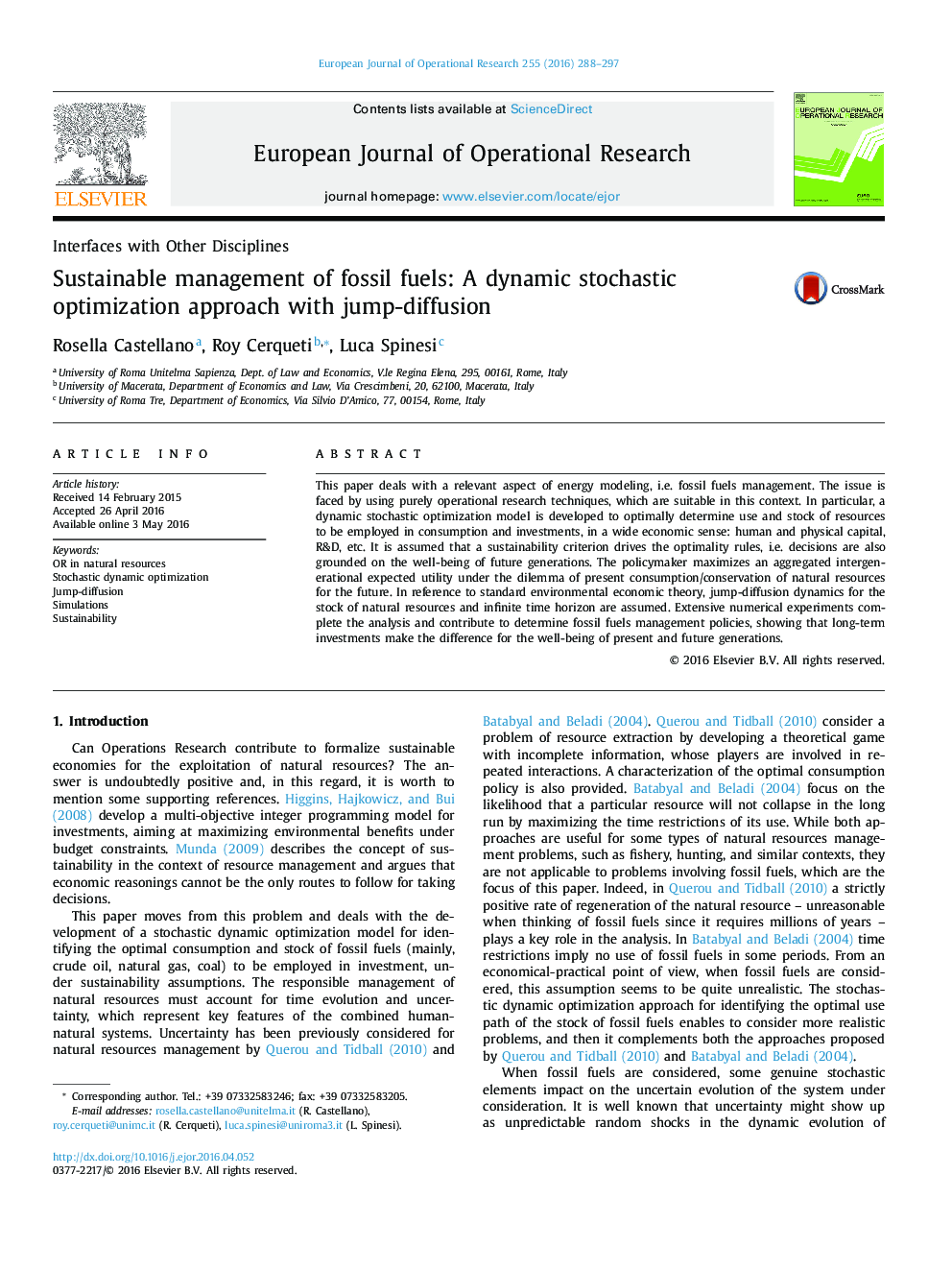| Article ID | Journal | Published Year | Pages | File Type |
|---|---|---|---|---|
| 480436 | European Journal of Operational Research | 2016 | 10 Pages |
•We optimize stock of crude oil to be employed in R&D and consumption.•We introduce sustainability: a stock of oil is spared for future generations.•We develop a stochastic optimal control model in presence of jump diffusion.•Solution is obtained theoretically (dynamic programming) and by using simulations.•Outcome: an environmental sustainability policy is economically optimal.
This paper deals with a relevant aspect of energy modeling, i.e. fossil fuels management. The issue is faced by using purely operational research techniques, which are suitable in this context. In particular, a dynamic stochastic optimization model is developed to optimally determine use and stock of resources to be employed in consumption and investments, in a wide economic sense: human and physical capital, R&D, etc. It is assumed that a sustainability criterion drives the optimality rules, i.e. decisions are also grounded on the well-being of future generations. The policymaker maximizes an aggregated intergenerational expected utility under the dilemma of present consumption/conservation of natural resources for the future. In reference to standard environmental economic theory, jump-diffusion dynamics for the stock of natural resources and infinite time horizon are assumed. Extensive numerical experiments complete the analysis and contribute to determine fossil fuels management policies, showing that long-term investments make the difference for the well-being of present and future generations.
